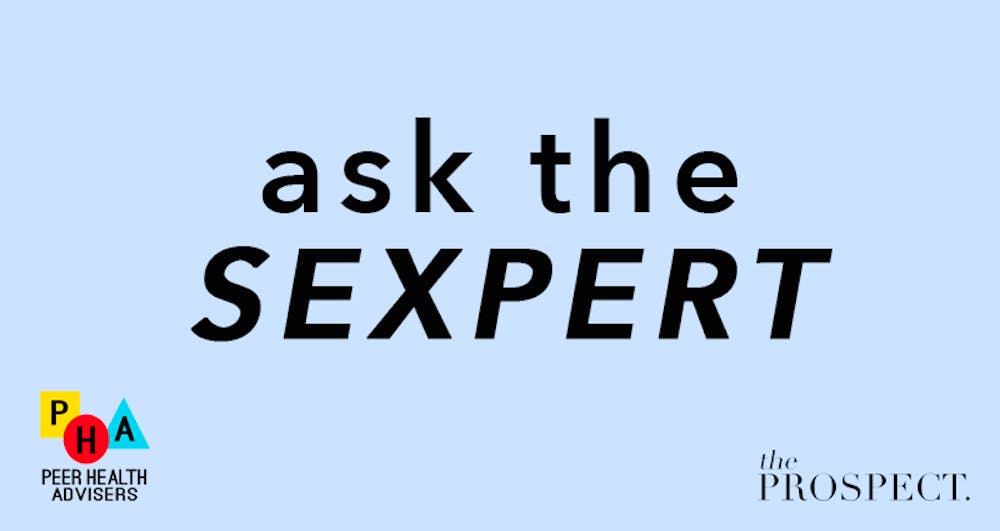Dear Sexpert,
I have a history of struggling with my mental health, namely depression. I recently changed my medication and have been feeling different ever since. The biggest problem is I’ve felt really disconnected from my partner, and I’m never in the mood to have sex. I don’t want my partner to think I’m not attracted to them anymore, but I’m not sure how to fix this.
Best,
Distant Date
Dear Distant Date,
What you’re feeling is completely valid! Many factors such as depression, anxiety, stress, and exhaustion can affect your sex drive and emotional availability in a relationship. These factors can overwhelm your emotions, making you unmotivated to participate in sexual activity or any other emotional connections, which is separate from your attraction to your partner. If you are taking medication to treat your depression, there are side effects that can also affect how you develop relationships with other people. Note that it might take some time to get used to these effects.
Both depression itself and many antidepressant treatments are known to cause low libido and lack of sexual motivation, so it might be hard to know which one is the cause in your situation. According to the Cleveland Clinic, there are many different ways depression can impact sexual dysfunction including low self-esteem, inability to experience pleasure (e.g., limited arousal, inability to orgasm), low energy levels, loss of interest in activities, and mood swings. So, if you are facing any of these symptoms, just know that this is due to the many chemical processes taking place in your body!
When someone is experiencing depression, oxytocin levels in the brain decrease. Oxytocin is an important chemical that regulates sex drive and desire, which explains how depression can affect libido. Oxytocin is also considered the bonding chemical, which increases a sense of trust and connection, particularly through touch; low oxytocin levels due to depression might explain your feeling of disconnection from your partner. Stress can also be a huge factor in low libido! According to VHC Health, chronic stress, or chronic high levels of cortisol, can suppress sex hormones and cause a low sex drive. All of these factors are also mentally-taxing and can cause extreme fatigue and low energy, which will also impact sex drive. Chances are that the more stressed out you are about all this, the less “in the mood” you’ll feel.

Antidepressant medication can also help ease depression through spiking levels of serotonin in your body. However, this spike in serotonin can make it difficult for your brain to communicate with your body and can decrease sex drive. Despite these effects, it is important not to just stop taking your medication, but to instead explore other solutions. Sometimes there is an adjustment period and side effects lessen over time. Some antidepressant medications focus on chemicals other than serotonin in your brain, such as dopamine or norepinephrine, and usually have fewer sexual side effects. It is also possible that a combination of medications could offset some of the side effects, without reducing the effectiveness of your antidepressant. Therefore, it may be helpful to discuss these options with your prescribing provider, or connect with a psychiatrist at McCosh Health Center’s Counseling and Psychological Services (CPS) to discuss possible changes in medication or discuss next steps in prioritizing your mental health.
In the meantime, it’s important to communicate what you’ve been feeling and struggling with to your partner. There can be a stigma associated with mental illness, which may impact when and how people disclose their mental health challenges to others. Your partner may not know about the common sexual side effects of depression, anxiety, and stress, so educating and sharing your experience with them allows them to better understand how you are feeling. Begin a conversation and try to communicate what you are comfortable with regarding intimacy in the relationship at the moment. Plan a time where you can sit down and have this discussion with your partner in a comfortable, relaxed environment, so you both can plan out boundaries and next steps.
If you’re having trouble beginning this conversation or knowing what to do next, you can always schedule a Wellness Chat with a Peer Health Adviser to navigate options. It’s important to remember that it’s not your fault and that this can be remedied with open communication and by consulting with healthcare providers to find solutions that support your mental health, while minimizing these unwanted side effects.
Sincerely,

The Sexpert
The Sexpert is a monthly column written in collaboration between The Prospect and the Peer Health Advisers (PHA) program. For more information, you can visit the Sexpert’s website. If you are interested in submitting a question, you can send it through this form: tinyurl.com/princetonsexpert.








